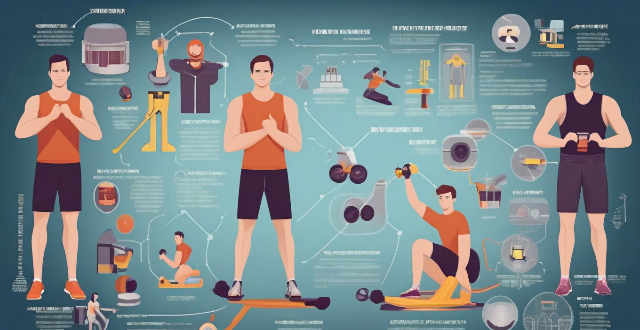Visualization, or mental imagery, is a powerful tool for athletes to enhance performance and build a strong sports mentality. It involves using imagination to simulate experiences and practice skills mentally. The science behind visualization shows that it activates similar neural networks as physical performance, aiding in motor learning and refining movement patterns. Psychologically, it boosts confidence and reduces stress. Benefits include skill refinement, strategy planning, resilience building, focus sharpening, clear goal setting, and increased motivation. To implement visualization effectively, find a quiet space, set clear intentions, use all senses, and ensure positive outcomes. Incorporating visualization into training can significantly improve an athlete's readiness for competition and overall sports psychology.

The Significance of Visualization in Cultivating a Robust Sports Mentality
Visualization, also known as mental imagery or mental practice, is an incredibly powerful tool for athletes seeking to enhance their performance and build a strong sports mentality. It involves the use of one's imagination to recreate experiences, simulate scenarios, and practice skills mentally without physical activity. Here, we delve into why visualization is so crucial for athletes:
The Science Behind Visualization
*Cognitive Mechanisms*
- Neurophysiology: Studies have shown that visualizing an action activates some of the same neural networks as actually performing the action. This means that mental practice can reinforce the neuromuscular pathways involved in a skill, leading to improved execution when physically performed.
- Motor Learning: Visualization aids in motor learning by helping athletes refine their understanding of the movement patterns and muscle coordination required for a particular sport or skill.
*Psychological Impact*
- Confidence Building: By repeatedly visualizing successful outcomes, athletes can boost their confidence in their abilities, which translates to better performance under pressure.
- Stress Reduction: Visualization techniques can help reduce anxiety by allowing athletes to mentally prepare for high-pressure situations and develop coping strategies.
Benefits of Visualization in Sports
*Performance Enhancement*
- Skill Refinement: Athletes can use visualization to break down complex skills into smaller components, focusing on specific aspects that need improvement.
- Strategy Planning: Competitors can simulate game scenarios, working through various strategic possibilities and responses to potential challenges.
*Mental Toughness Development*
- Resilience Building: Envisioning setbacks and how to overcome them can foster resilience, preparing athletes for adversity they may face during competition.
- Focus Sharpening: Regular visualization exercises can improve an athlete's ability to concentrate on the task at hand, blocking out distractions.
*Goal Setting and Motivation*
- Clear Objectives: Visualizing goals makes them more tangible, providing a clear target for an athlete’s efforts.
- Drive and Motivation: Seeing themselves achieve their goals in their mind's eye can fuel an athlete's motivation to train harder and push through obstacles.
Implementing Visualization Techniques
*Creating an Effective Routine*
- Find Quiet Space: Select a place where you won't be disturbed so that you can fully immerse yourself in the visualization.
- Set Clear Intentions: Before beginning, define exactly what it is you want to achieve with your visualization session.
*Practical Tips for Successful Visualization*
- Use All Senses: Involve sight, sound, touch, smell, and taste in your mental practice to make it as vivid and realistic as possible.
- Positive Outcomes: Always end your visualization with a positive outcome to reinforce feelings of success and confidence.
In conclusion, visualization is an indispensable component of building a strong sports mentality. It not only enhances performance but also cultivates mental toughness and goal-oriented behavior. By integrating visualization into their training regimen, athletes can significantly improve their readiness for competition and their overall sports psychology.